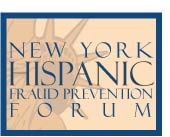Published: September 2006
Most common scams against Latino consumers
The Federal Trade Commission (FTC) will release the results of the Hispanic Surf—an anti-fraud project—on September 27, 2006. Consumer Action will report on this important release. Meanwhile, Consumer Action's staff has examined 2006 scams and complaints by Latino consumers and found some trends to share.

Sol Carbonell, one of Consumer Action's Associates, National Priorities, states that credit card frauds—especially advance fee credit scams—are seen a lot by the organization's Spanish-speaking hotline counselors. Carbonell added, "I find that many Latinos have problems with their landlords, and I don’t think this gets reported to the Federal Trade Commission (FTC) because it’s handled at the state level.
Carbonell anticipates that predatory lending and housing complaints/scams will increase in the Latino community, considering that the Hispanic Real Estate Professionals Association states that “by 2010, 40% of all first-time homeowners in the U.S. will be Latinos."
The FTC prepared this list of the most common scams against Latino consumers in 2004:
- Predatory lending practices. Lower income levels and other factors can make obtaining access to credit difficult. Moreover, Hispanics unfairly may be charged higher interest rates.
- Immigration fraud. Perpetrated by so-called “immigration consultants,” such schemes tend to increase when immigration legislation (for example, for an “amnesty”) is being proposed or considered. The “consultants” take advantage of general awareness of possible new programs and their victims’ lack of sophistication about the legislative process.
- Used cars. Some sellers fail to comply with applicable state and federal laws, such as the FTC’s Used Car Rule (if a transaction is conducted in Spanish, the mandated “Buyers Guide,” disclosing whether the vehicle comes with a warranty or “as is,” must be provided in Spanish) or California’s law that if negotiations are conducted in Spanish, the written contract also must be in Spanish.
- Health insurance fraud. Because minimum wage earners often do not obtain health insurance from their employers, they are attracted to offers for low-cost health insurance, which may not provide the advertised benefits, if any.
- Buying clubs (offering discounts on products and services). For Hispanics who seek discounts and best prices, offers for buying clubs are extremely attractive. Panelists at an FTC Hispanic/Latino Outreach Forum described a Hispanic cultural affinity for “free” or discounted goods and services, and an economic need for them driven by lower income levels as a group. Buying clubs often are offered for free for thirty days, requiring the consumer to cancel before the end of thirty days to avoid being charged for the club.
- Work-at-home schemes. The panelists considered this a growing problem area that particularly takes advantage of undocumented immigrants seeking an income without having a traditional employer. Tackling this fraud also poses challenges because these schemes are advertised not just in classified ads and other media, but often by signs tacked onto telephone poles.
- Notario fraud. In most Latin American countries, the term “notario” implies that the person described is a licensed attorney. Panelists reported a common scam involving individuals who represent themselves as “notario” and offer help with the immigration process; in fact, these individuals are not attorneys.
- Remittances. The panelists noted that many Hispanics wire money to relatives in their home countries and that there are many problems with undisclosed fees or fees that vary from what was disclosed.
- Prepaid phone cards. Panelists agreed that problems with undisclosed fees are commonplace with these cards.
- Employment agency fraud. This fraud preys upon undocumented immigrants looking for work and tends to increase when the economy is in a downturn.
- Panelists observed that purported cures for many ailments appear in numerous Spanish newspapers and other Spanish-language media.
For More Information
On September 27, 2006, the Federal Trade Commission, the United States Postal Inspection Service, the U.S. Attorney’s Office, Southern District of New York, and the Manhattan Hispanic Chamber of Commerce will host a Hispanic Fraud Prevention Forum in New York City. The event is open to the public.
Download File
No Download Available



